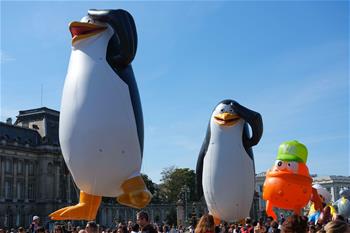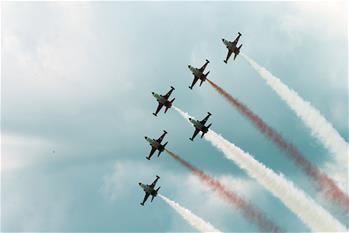MOSCOW, Sept. 16 (Xinhua) -- Russia and Belarus may partially merge their economies starting from January 2021, Russia's Kommersant business daily reported Monday.
"This degree of integration is higher than in the European Union. Basically the talk is about the creation of a confederate state at the level of economies in 2022," Kommersant said, quoting a draft economic integration program, initialed by the parties in early September, but not made public.
The merger will involve the introduction of unified Tax and Civil Codes, foreign trade regime, accounting of property and similar social guarantees, joint banking supervision but with two central banks, a single regulator of oil, gas and electricity markets and harmonized state regulation of industries, the report said.
The merger is unlikely to be on equal grounds with the Russian economy 29 times larger than that of Belarus, according to the newspaper.
The Treaty on the Creation of a Union State of Russia and Belarus was signed on Dec. 8, 1999. After being ratified by the Russian State Duma and the National Assembly of Belarus, the Treaty and the Union came into effect in January 2000.
Kommersant said that practical negotiations at the presidential and government levels have been ongoing since spring 2019.
On Sept. 3, the Belarusian government submitted the draft action program for the integration of Belarus and Russia to the Belarusian president for approval.
The document does not contain specific agreements on a "single" budget of the Union State, and it is too early to assess whether there would be tax risks for Russia, Kommersant said.
The draft does not affect such areas as defense, state security, courts, law enforcement, the internal structure of the executive branch in Russia and Belarus, as well as the executive power of the Union State, it said.
The parties agreed that "other provisions of the treaty" on the Union State may also be discussed, the newspaper said.
There is no reason to talk about the actual unification of the two countries at least until 2022, as the document deals only with economic integration, Kommersant said.













